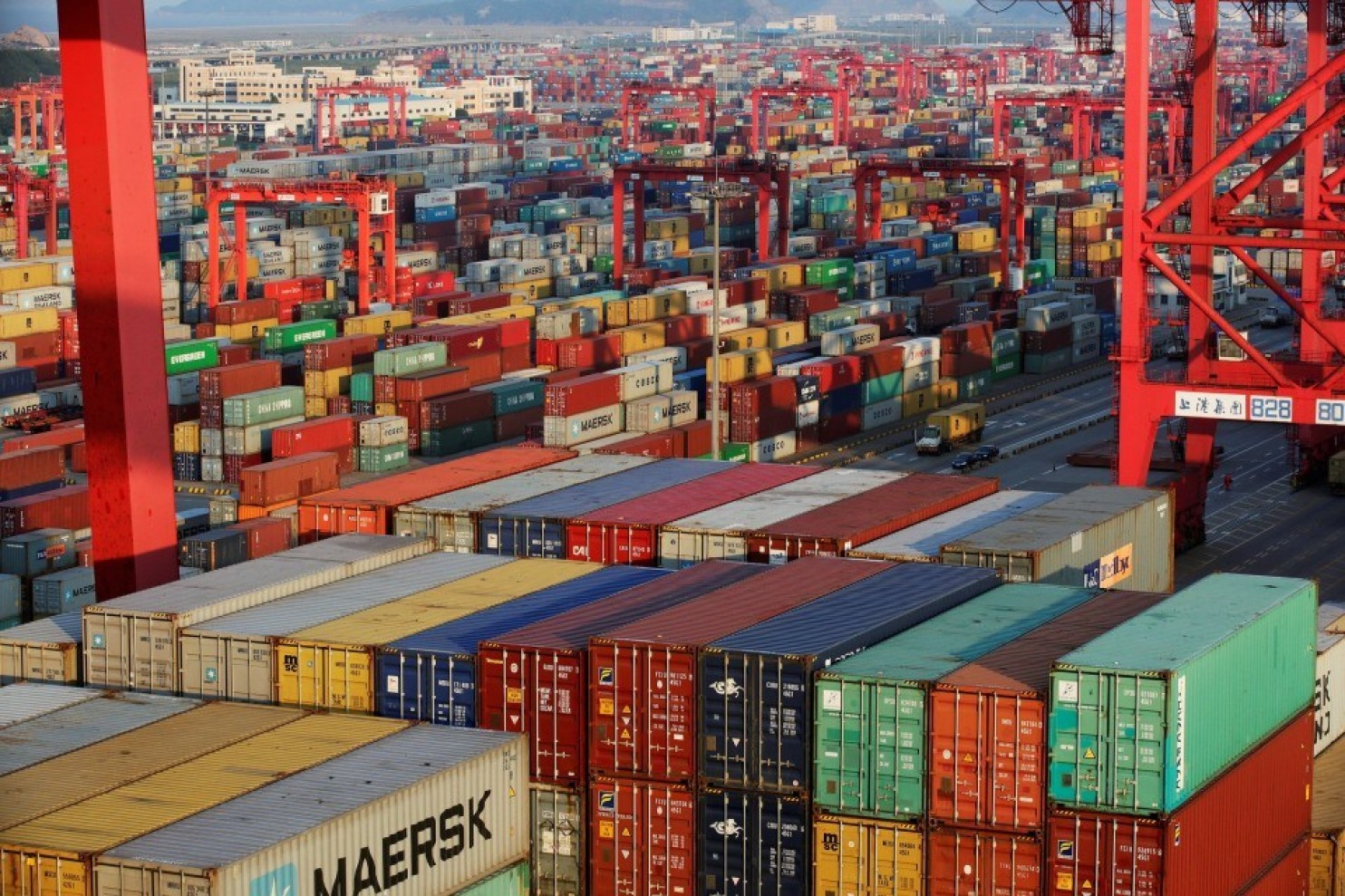Media Report

- CNBC reports: "China warned the United States on Thursday not to open Pandora's Box and spark a flurry of protectionist practices across the globe, even as Beijing pointed to U.S. goods that it could target in a deepening Sino-U.S. trade dispute. China could target a broad range of U.S. businesses from agriculture to aircraft, autos, semiconductors and even services if the trade conflict escalates, the official China Daily newspaper said in an editorial on Thursday. President Donald Trump's move last week to slap up to $60 billion in tariffs on some Chinese imports has since provoked a warning from Beijing that it could retaliate with duties of up to $3 billion of U.S. imports."
- Bloomberg reports: "It may have been billed as an unofficial trip, but China's President Xi Jinping pulled out all the stops during a four-day visit to Beijing by North Korea's leader Kim Jong Un, his wife and a train load of dignitaries. In fact it's hard to spot the difference in Kim's welcome and the show Xi put on for President Donald Trump last November. Kim's trip, chronicled by North Korea's official Korean Central News Agency, was perhaps all the more impressive because it took place in near total secrecy. Trump's visit was billed as a "state-visit plus" and included a precedent-breaking tour of the Forbidden City. But when you consider the honors heaped on Kim — and the clandestine nature of his visit — should Trump's nose be out of joint?"
- The Economist comments: "Traditionally, to count as an oil power a country had to be a big producer of the black stuff. China is the world's biggest importer but still wants to break into that exclusive club. On March 26th it launched a crude futures contract in a bid to gain more clout in the global market. Some think that, if successful, the yuan could start to displace the dollar in oil trading... China has two goals. The basic one is to help its companies hedge against volatility. Chinese refiners and traders have struggled to manage currency risks because of capital controls. An onshore contract that lets them lock in the future price of oil in yuan is thus appealing... More ambitiously, China hopes to create a standard for oil pricing as a rival to Brent in Europe and West Texas Intermediate in America—a standard that reflects its own supply and demand."
Calendar
- 2018-03-28 Kim’s Message for Trump: China Is Back on Our Side
- 2018-03-27 What Kim Jong-un May Get in Reaching Out to China
- 2018-03-26 The US and China are in talks to try to avoid a trade war
- 2018-03-25 US, China Quietly Seek Trade Solutions After Days of Loud Threats
- 2018-03-23 Responding to Trump, China Plans New Tariffs on U.S. Goods
- 2018-03-22 China: We will hit back if US announces new tariffs
- 2018-03-21 How a Trump trade war with China could whack the U.S.
- 2018-03-20 China’s Leaders Smooth Trade Tensions but Talk Tough on Taiwan
- 2018-03-19 Xi Taps Harvard-Educated Adviser to Tighten Grip on China’s Economy
- 2018-03-18 Forty-five US trade groups urge Trump to avoid tariffs against China
News
- Bloomberg How China's Xi Gave Kim Jong Un the Trump Treatment
- CNBC China is reportedly taking the first steps to pay for oil in yuan instead of US dollars this year
- The New York Times Kim Jong-un's China Visit Strengthens His Hand in Nuclear Talks
- ABC News Kim Jong-un's Beijing visit shows China is winning at North Korea diplomacy, not Donald Trump
- The New York Times China, Kim Jong-un, Easter: Your Thursday Briefing
- CNBC China warns US not to open Pandora's Box, unleash trade ills on world
- CNN It's not just Facebook: China's biggest tech company is getting crushed
- The New York Times Anbang Was Seized by China. Now, It Has a Deal for You.
- BBC News Airbnb to give Chinese authorities guest information
- CNBC China could target broad range of US businesses if trade spat worsens: China Daily
- Bloomberg China Consumer Loan King Ant Financial Hit by Debt Sale Drop
- The New York Times White House Looks to Use Emergency Law to Halt Chinese Investment
- Bloomberg The Chinese Unknown That's Making Africa's Phones
Commentary
- Economist China's Communist Party meets the world
- MIT Technology Review China's citizens do care about their data privacy, actually
- Economist China wants to reshape the global oil market
- Defense One China Is Filling the Africa-Sized Gap in US Strategy
- The Atlantic Why Did Kim Jong Un Just Visit China?
- CoinDesk State Digital Currency Still On Agenda, Says China's Blockchain Lead
- Forbes Is Alibaba Losing To Tencent In China's Trillion-Dollar Payment War?
